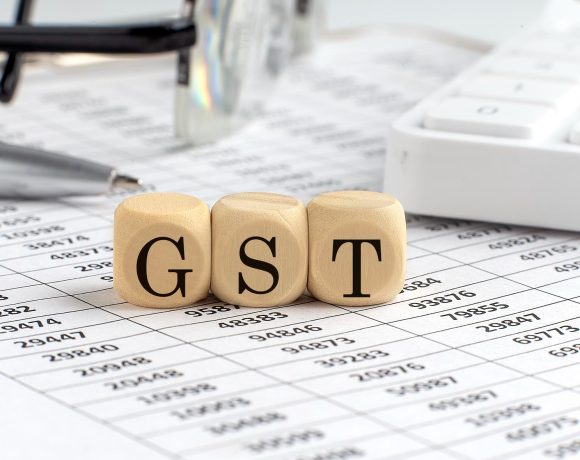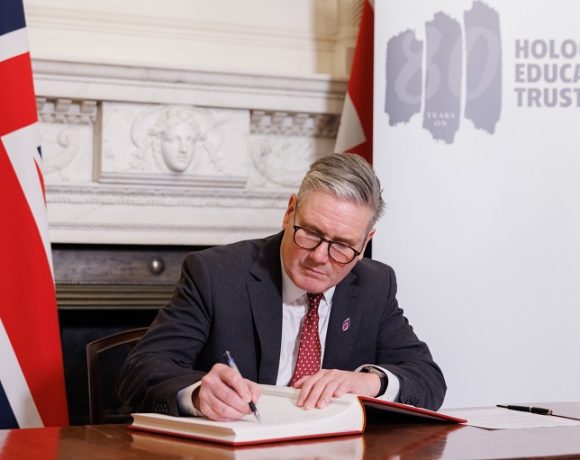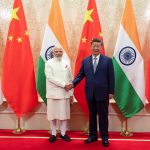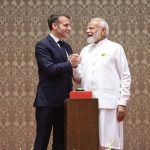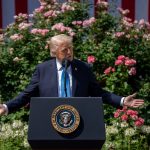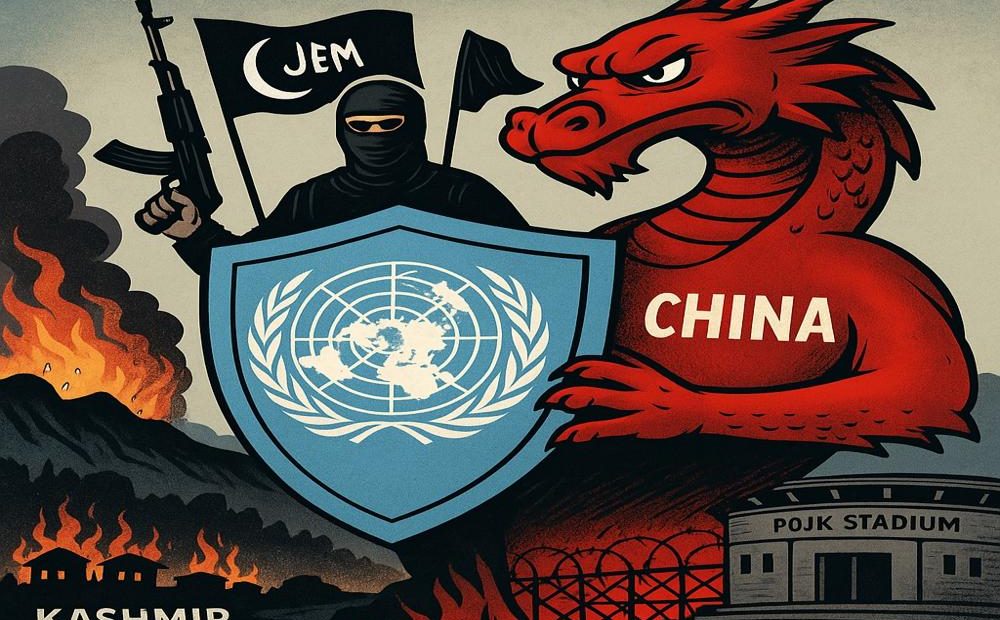
China’s UN Veto Shields Pakistan’s Terror State
The global war on terror isn’t failing due to lack of weapons or intelligence—it’s failing because some nations wear suits in Geneva while fueling jihad with vetoes in New York. Chief among them is China. With each blocked UN resolution, each “technical hold” on global terror designations, China ensures Pakistan’s state-sponsored terror apparatus continues operating with impunity. In shielding Islamabad, Beijing isn’t acting as a neutral superpower—it is behaving as a co-conspirator.
The China-Pakistan alliance, often sold as an “iron brotherhood,” is less about brotherhood and more about geopolitical utility. Beijing has invested too much—economically, militarily, and diplomatically—to let Pakistan implode under the weight of its own jihadist indulgences. With the China-Pakistan Economic Corridor (CPEC) running through PoJK and connecting to Gwadar, China has a direct interest in stabilizing Pakistan—even if it means stabilizing terrorism.
Nowhere is this more evident than in the Masood Azhar saga. Despite mounting global pressure and evidence—including Azhar’s own public admissions—China repeatedly blocked the UN Security Council from designating him a global terrorist. Even after the 26/11 Mumbai attacks and Pulwama, China stalled the designation under the pretense of “further verification.” It took a multi-nation diplomatic siege in 2019 to finally push Azhar onto the list. And yet, China continues to shield many others under the farcical banner of “technicality.”
The UN Security Council’s 1267 Sanctions Committee, meant to act swiftly against terror threats, has been rendered impotent by China’s misuse of veto powers. Multiple Lashkar-e-Taiba and Jaish-e-Mohammed leaders have walked free while their names languished behind China’s protective blockade. The world watches as procedure trumps justice—again and again.
Then comes the money trail. China has invested over $60 billion in Pakistan through CPEC. The reality? CPEC isn’t just a highway of commerce—it’s a leash. China won’t call out Pakistani terror because it fears the backlash that might endanger its investments. Even more brazen is the contradiction: while Beijing jails Uighur Muslims for practicing their faith, it silently supports Pakistan’s jihad factory against India. Strategic hypocrisy at its finest.
And just when you thought it couldn’t get worse, February 2025 delivered a fresh low. At Shaheed Sabir Stadium in Rawalakot, JeM and LeT leaders openly paraded alongside Hamas representatives in an event endorsing “global jihad against occupiers.” Flower petals, SUVs, and fiery speeches filled the air. China, a permanent member of the UN Security Council, offered no condemnation. Imagine if such a rally were held near Xinjiang—Beijing would have flattened it within the hour.
But while China enables this terror architecture, India continues to walk alone in a rigged game. Despite multiple provocations from both Beijing and Islamabad, New Delhi has cautiously maintained a “neutral” posture, wary of being pulled into U.S.-China dynamics. Even as the West offers strategic partnerships, India insists on going it alone.
That approach is no longer sustainable. India is now dealing with a twin-headed threat: Pakistan with its jihadi assets, and China with its economic chokehold and diplomatic shields. Strategic autonomy cannot mean strategic paralysis. India must recalibrate its foreign policy—forge stronger alliances within frameworks like QUAD, sign reciprocal defense pacts, and launch an international campaign to expose China’s complicity in terror diplomacy.
It’s not enough to respond to attacks with dossiers. The world must be made to see that Pakistan may pull the trigger, but China always wipes the fingerprints. The silence must end—not just for India’s security, but for global credibility in the fight against terrorism.



